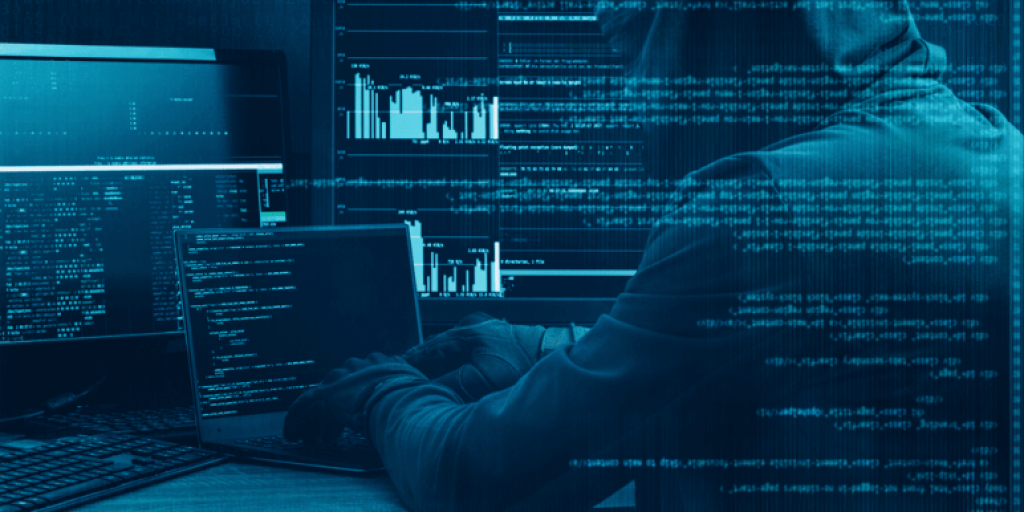Cyber Security: What is it? Why does it matter?
In this cyber security guide…
- What is Cyber Security?
- Why Is Cyber Security Important?
- How Big Is The Cyber Security Threat?
- What Are The Main Types Of Cyber Security Threat?
- How do cyber criminals get to your personal data?
- How can you stay safe online and protect yourself from cyber security threats?
- Don’ts
- Cyber Security For Business
To this day, the total global annual damage to businesses as a result of cyber crime is approximately $1.5 billion U.S. dollars. With that much money, you could fly to Mars and back 3000 times, or even buy the Whitehouse 3 times over!
But cyber crime is a serious serious matter and as we are growing into an age of digitization, more and more people are being exposed to some extremely dangerous threats from hackers, fraudsters, and organized crime syndicates. This article will shed some light on what cyber security is, how you can stay online, and will offer a few do’s and don’t to help you stay safe on the web.
What is Cyber Security?
Simply put, cyber security is the practice of keeping yourself or your business safe online, by amping up your computer’s protective features and following a set of safety practices, to reduce the risk of you becoming the subject of malicious online hacks.
Your devices will all store large quantities of personal data and information and if you run a business you might have information about other people on your devices. Securing your devices and networks against these threats means you are reducing the risk of getting hacked, putting a protective shield around your personal data so that no one else but you can access it.
Why Is Cyber Security Important?
As more and more people have access to the internet, more personal data is being exposed to hackers and fraudsters online. On average, someone’s cyber security is hacked every 39 seconds, affecting one in three of us every year.
And the scary point is you may not even realise your personal information has been taken! Whether it’s through online banking systems, cloud storage facilities, or even our social media accounts, it is now easier than it ever has been for hackers to steal our data.
Plus with new GDPR legislation in place in the UK, there is now a greater impetus and legal threat to companies to ensure they pay close attention to how they manage other people’s data. Poor cyber security systems, that lead to a leak in sensitive information can land companies in some serious hot water.
Modern-day cyber criminals and hackers are becoming way more sophisticated. You might have seen recently, hackers infiltrating the government’s COVID-19 track and trace systems, sending fake messages to vulnerable members of the public asking them to sign up to fraudulent phishing sites. These attacks are becoming more and more intuitive and harder to stop.
And with many people suffering a huge economic and reputational loss from their personal information being leaked online by hackers, this is why it is so important to have some sort of security behind us.
How Big Is The Cyber Security Threat?
Global connectivity is increasing and in 2020 more than half of the world’s population now has access to the internet. As more people are coming online daily, there is so much more room in this age of digitization for hackers to steal information from unassuming members of the public.
Targeting mostly large government organizations, medical services, and retail entities, the top hackers can now pretty much gain any piece of information they want. It is a lot harder for a hacker to get into a government or medical system which will usually have the best security systems in place.
Yet modern hackers are so smart and prolific that this doesn’t deter them from stealing your personal information. One particularly frightening thought is that hackers can access your phone’s microphone or your laptop’s webcam, which makes you feel uneasy, right?
One other slightly creepy but also very interesting theory suggests that hackers could soon be able to listen in on your phone’s microphone while you unlock your front door and cloning a set of fake keys just from listening to how the latches click in the lock. This is how innovative online fraudsters are becoming. From targeting huge corporations like the NHS, to attacking you at the front door of your house, cyber threat is big and it is real.
What Are The Main Types Of Cyber Security Threat?
There are many different types of threats out there. They can all be labelled as 3 main types of attack:
- Cyber crime
An act by an individual or group of individuals looking to gain information or money from their targets, by causing a data leak and gaining access to an array of personal information.
- Cyber attack
A single attack on a mainframe or network with the impetus to bring that network down. Remember the WannaCry cyber attack that brought down the NHS’s computing systems in 2017? That is an example of how a cyberattack can cripple a whole network of computers bringing public services to a holt.
- Cyber terrorism
Causing panic or fear through the disruption of electronic systems or operational systems, caused by terrorists hacking into private or government operations systems.
How do cyber criminals get to your personal data?
Malware
Modern cybercriminals will use an array of different malware to gain access to your personal data. Malware is essentially a malicious piece of software or program that infiltrates your computer’s network or data files and damages your content.
It can be spread in a variety of ways, for example, through a malicious email attachment or by clicking on a dodgy website pop-up. There are many different types of malware, but here are some you should make yourself familiar with:
Viruses
Like a flu virus, these are self-replicating pieces of computer coding that spread like wildfire from host to host. They infect each host typically through email spam or by downloading malicious content from the web and will infect and corrupt your computer’s data files, erase your data, and steal your passwords.
For more information on how to protect yourself from viruses, take a look at our article on the best antivirus software.
Spyware
It does as its name suggests. Spyware spies on what you’re doing, recording your actions online, and sending that information to cyber criminals, most likely so that they can target ways of how best to infiltrate your computer.
Ransomware
Think of ransomware like a hijacking and hostage situation. Your personal information is hacked and is locked down by a virus that will only give you that information back if you pay a ransom to your hackers.
Phishing
This is a practice that is used a lot against the elderly or those who are vulnerable. Fraudsters will essentially send out communications via email, text, or over the phone, pretending to be a proper organization like your bank or the government and will request you provide either a password or your banking information to assist them with a service.
Adware
Sometimes you might be on the web and an advertisement will pop up on your desktop. This is adware and is dangerous as it can record all your computer’s activity and deep dive into your data which hackers can then use to develop new viruses and bugs that can bypass your computer’s systems and firewalls.
Denial-Of-Service Attack (DOS)
More sophisticated than the others on this list, in a DOS attack, cyber criminals will inhibit a computer system from operating as it should by pushing more traffic through its servers and networks causing them to crash.
Trojans
Similar to a virus, Trojans are disguised as a normal and safe piece of software that tricks users into downloading it. Once installed on your computer it acts in the same way as a virus would damaging and collecting your personal information.
How can you stay safe online and protect yourself from cyber security threats?
Here are our top tips giving you the do’s and don’ts to staying safe online.
DO’s
- Use the latest software and operating systems on all your devices.
Keeping your computer’s software up-to-date will reduce the likelihood of you getting hacked. Each time you install an update you’ll have installed the latest security features, which Hackers will have to infiltrate to get into your personal information.
It then becomes a never-ending battle between hacker and developer, to see who can quickly patch up or infiltrate a weak piece of coding in your computer’s security mainframe. It’s basically like a game of cat and mouse.
But you should always keep your computer up-to-date to ensure you have the latest security patch installed.
- Back up all your data all the time.
If your computer does get infected with a virus, that virus can remove and destroy all the data on your computer, so it is vital to store your personal information in more than one place. Most antivirus software providers can supply you with secure cloud storage for your data.
- Use complex passwords.
Did you know the password “123456” is still used by 23 million people around the world? It’s so important these days to have a unique password for each of your different online accounts. The most secure passwords are 12 to 15 characters long and use capital letters, numbers, and symbols and you can store all these passwords in a vault to keep them safe.
- Download and use the best antivirus software.
Antivirus software can go a long way in helping to protect you against threats online. From scanning and securing your data files, to putting up protective firewalls around your personal information. Antivirus software also can provide you with some cool features like password vaults, secure cloud storage, and VPN services to increase your security online.
Check out the top 10 antivirus software here.
- Use two-factor authentication.
This can be a pain if you forget your password or change your email address but is definitely worth it for the added security features. Two-factor authentication requires you to log in or confirm a passcode on a trusted device or email account when you log in to one of your online accounts.
You’ll see many online banking providers using key fobs to authorize access when you log on to view your statements. This is an excellent way of adding another layer of protection onto your account if a hacker has access to your passwords and is something we recommend you consider when you sign up for any online account.
Don’ts
- Where possible, avoid sharing your personal information online.
Remember anyone and everyone can collect and view your information online, meaning you should limit the amount of data you’re putting online where you can.
- Don’t use the “keep me logged in” settings.
Especially on public computers, don’t tick the box when you log in that says keep me logged in on this machine. It is a simple and easy way to display your password online and although slightly annoying having to type your password in every time you log in, you’ll be safe in the knowledge that you have, to some extent, mitigated the risk of having your password stolen.
- Never click on pop up ads that come up on your screen.
Close down any advertisements that pop up on your computer’s dashboard. One great tip is to download a popup blocker for your web browser. These do a great job of blocking most adware and pop-ups from accessing your computer.
- Avoid going on dodgy websites and clicking on email attachments from people you don’t know.
Don’t click on something that looks like it doesn’t belong in your inbox. Everyone gets a ton of spam through to their mail accounts and one of the biggest ways a virus can infiltrate your systems is by clicking on a spam email and opening its attachment. Don’t open anything from anyone you don’t know or trust.
- Only shop on sites that have “https://” at the start of their web address.
For security purposes, only enter your bank details in websites that have either a padlock symbol in the top left-hand corner of your address bar or “https://” at the start of their name. This means that there is an extra layer of security between the website and you meaning that you and the online shop are the only two users viewing this connection at that time.
Cyber Security For Business
The same points apply to businesses as they do for members of the public. Although there are a couple of extra points to think about. Firstly you’ll want to educate your employees on how to stay safe online and set protocols for the use of your business’ equipment.
For example, I have worked in organisations that prevented me from charging my personal phone up via my laptop. This was to prevent me transferring any malware over from my personal gadgets and uploading it to my office network.
Employee compliance and education of cyber security risks is key to ensuring you’re safe online. Similarly, you’ll also want to amp up and monitor your anti-virus software by purchasing the top of the range antivirus packages. Businesses are big targets for hackers and cyber criminals, and with new GDPR legislation, businesses can suffer the full wrath of the law if they aren’t careful with other people’s personal information.
That is why it may be worthwhile spending a little bit more to get the best online security possible.
Finally…
Ultimately antivirus software can only go some way in helping you stay safe online. It’s more about using common sense and your intuition to ensure you don’t become the victim of a phishing or a cyber attack.
Change your passwords to be more complex, avoid opening strange emails, use two-factor authentication on your online accounts, and above all else, back up your data as often as you can. Follow these tips and you will certainly become far more secure online. If you have any other tips you’d like to share, let us know in the comments below.
Found this Cyber Security Guide useful? Please recommend DigitalSupermarket!





